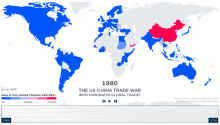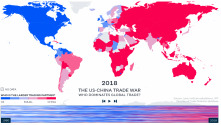The global financial crisis led to disillusionment with US-led globalization in many countries, including America itself. It was a major factor leading to China’s premature abandonment of Deng Xiaoping’s sage approach of “hiding light and biding time” in the belief that America was in irrevocable decline, reinforced by Obama’s perceived lack of stomach for the harsh realities of competition and his reluctance to use power.
China made a strategic mistake. Assertive Chinese behavior catalyzed concerns that had been brewing for some time in many countries, igniting a new competitive dynamic between the US and China. But China, and in particular Xi Jinping, cannot retreat without looking weak. This would be domestically disastrous for the Chinese Communist Party, and it will press on. Equally, no US president wants to be regarded as weak. In both the US and China, domestic politics drive strategic competition.
Ambassador Bilahari Kausikan is the chairman of the Middle East Institute at the National University of Singapore. He formerly served as permanent secretary of the Ministry of Foreign Affairs.
Above is what the author said.
So' it's all China's mistakes to not abide the Deng's thought in 1990s, so the nation must remain be the "world factory", making all the cheap stuffs and low-end and keep on polluting its lands and waters (while taking all the blame for being dirty and irresponsible as pumped by the MSM) and should not advance into the next stage of industrialization as stipulated in Xi's "Made In China 2025" development program... then among others being trapped in the middle-range income country while the population becomes aging, never move upward into the advanced, high income country. China should remain be low-tech industrialization and can not aspire to move into the high-tech sectors. I think that's what the author implies.


